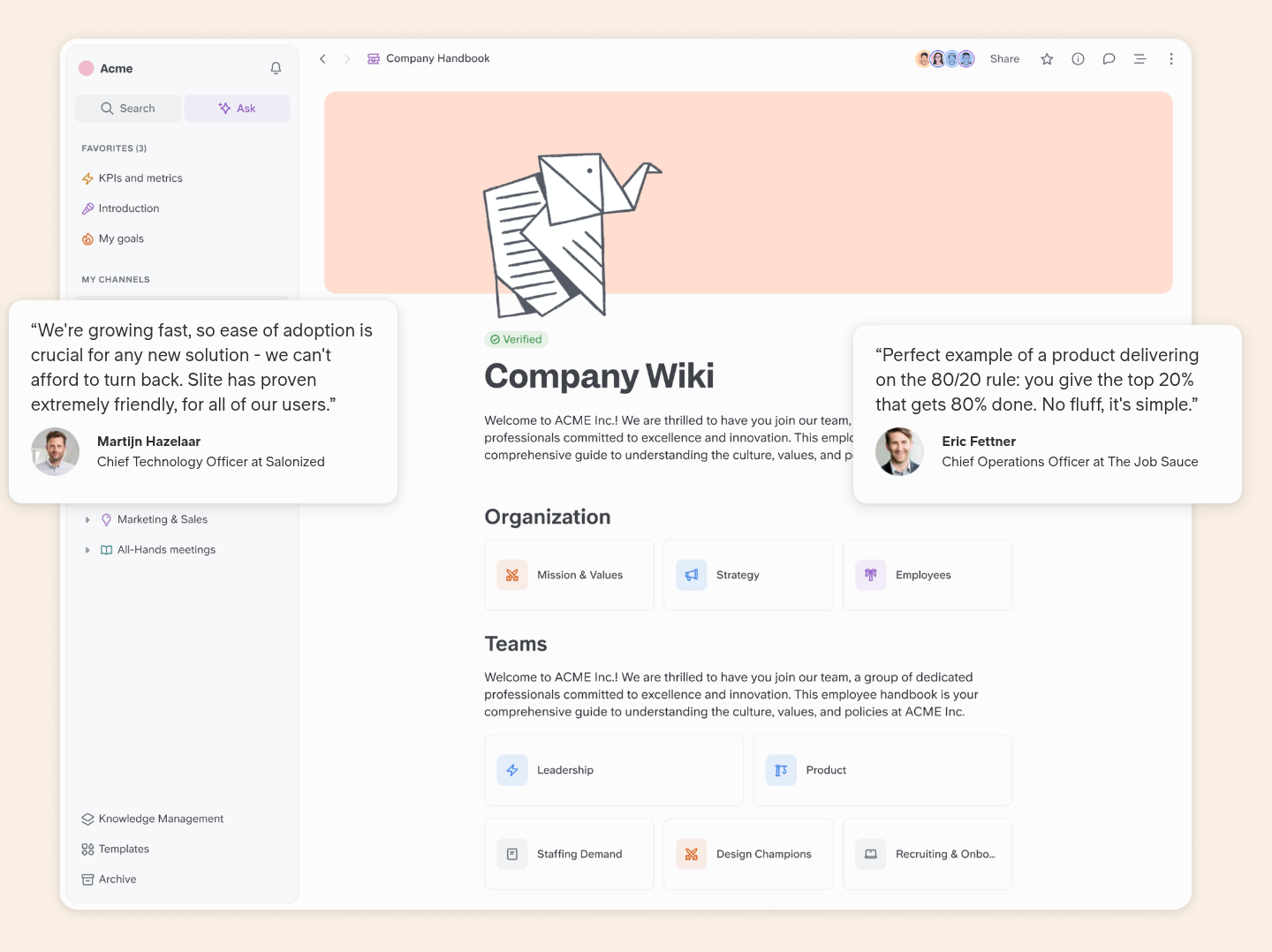Overview
Slite is a modern knowledge management platform that leverages artificial intelligence to transform how teams create, organize, and access information. The platform serves as a centralized workspace where teams can build their knowledge base with the assistance of AI-powered tools.

Key Features
AI-Powered Writing Assistant
- Smart Content Generation: AI helps users create comprehensive documents, meeting notes, and knowledge articles
- Writing Enhancement: Automatic suggestions for improving clarity, structure, and tone
- Template Suggestions: AI recommends relevant templates based on content type and context
Intelligent Search and Discovery
- Semantic Search: Advanced AI search that understands context and intent, not just keywords
- Content Recommendations: AI suggests relevant documents and information based on user behavior
- Auto-Tagging: Automatic categorization and tagging of content for better organization
Collaboration Features
- Real-time Editing: Multiple team members can collaborate on documents simultaneously
- Comment System: Contextual discussions and feedback on specific sections
- Version Control: Track changes and maintain document history
Integration Capabilities
- Third-party Integrations: Connects with popular tools like Slack, Google Workspace, and project management platforms
- API Access: Programmatic access for custom integrations and workflows
Use Cases
- Team Documentation: Create and maintain comprehensive team wikis and knowledge bases
- Meeting Management: AI-assisted meeting notes and action item tracking
- Onboarding: Streamlined new employee onboarding with organized resources
- Project Documentation: Centralized project information and progress tracking
AI Development Relevance
While Slite is primarily a knowledge management tool, it offers significant value for AI and software development teams:
- Technical Documentation: Maintain API documentation, system architecture notes, and development guidelines
- Research Organization: Organize AI research papers, experiment results, and model documentation
- Team Knowledge Sharing: Share development best practices, code snippets, and technical insights
- Project Planning: Document AI project requirements, specifications, and progress updates

